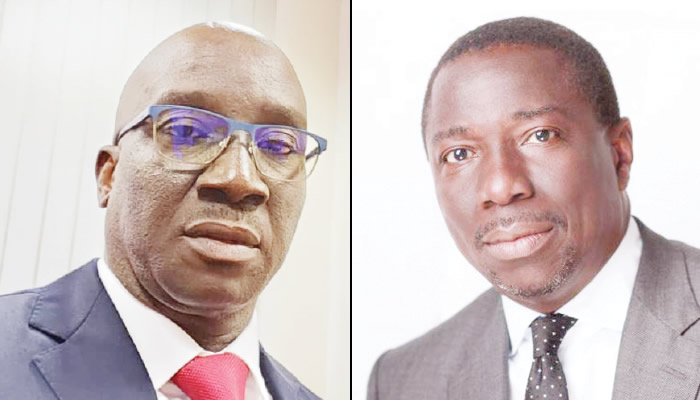The Edo State Governorship Election Petitions Tribunal’s relocation from Benin City to Abuja has introduced an unexpected twist to the ongoing legal challenges surrounding the Edo State governorship election. While the official notice, dated January 24, 2025, and signed by Tribunal Secretary Mu’azu Bagudu, succinctly informs involved parties of the move to the National Judicial Institute (NJI) in Abuja effective January 27, 2025, it conspicuously omits any explanation for the relocation. This lack of transparency fuels speculation and raises questions about the factors motivating this significant decision. The relocation itself carries potential implications for the accessibility and transparency of the proceedings, impacting not only the parties directly involved but also the broader public interest in the integrity of the electoral process.
Analyzing the potential ramifications of this relocation requires considering several factors. Firstly, moving the tribunal to Abuja creates logistical challenges for witnesses, legal teams, and observers who may have been based in or around Benin City. The increased travel time and expenses could deter participation, potentially impacting the presentation of evidence and arguments. Secondly, the shift in venue raises concerns about the perception of fairness and neutrality. While the NJI in Abuja is a respected institution, the relocation could be interpreted by some as an attempt to influence the proceedings, especially in the absence of a clear and compelling reason for the move. Maintaining public trust in the judicial process is paramount, and this unexpected change of venue necessitates a transparent and reassuring explanation from the tribunal authorities.
The absence of an official reason for the relocation creates a vacuum filled with speculation and conjecture. Several theories might be considered, including security concerns, logistical challenges in Benin City, or even potential attempts to exert undue influence on the tribunal’s proceedings. Without a forthright explanation, these speculations can erode public trust and cast doubt on the legitimacy of the tribunal’s eventual findings. Transparency is a cornerstone of a fair and just legal system, and in this case, the lack of transparency fuels uncertainty and raises concerns about the integrity of the electoral process itself.
The relocation of the Edo State Governorship Election Petitions Tribunal to Abuja underscores the importance of clear and open communication in legal proceedings, particularly those related to elections. The lack of an official explanation for the move not only generates speculation and fosters distrust but also creates practical challenges for participants. The tribunal’s authorities must prioritize transparency and provide a compelling rationale for the relocation to reassure the public and all stakeholders that the integrity of the proceedings will be maintained.
This relocation also highlights the broader need for proactive measures to ensure the smooth and transparent functioning of election petition tribunals. Clear guidelines and protocols for relocation, including the criteria for such decisions and the process for informing involved parties, should be established to prevent similar situations from arising in the future. Furthermore, mechanisms for ensuring accessibility and minimizing logistical burdens on participants should be implemented to uphold the principles of fairness and justice.
Ultimately, the Edo State Governorship Election Petitions Tribunal’s relocation to Abuja serves as a reminder of the vital role of transparency and clear communication in maintaining public trust in the judicial process. The absence of a clear explanation for this significant decision not only fuels speculation but also undermines confidence in the fairness and impartiality of the proceedings. Moving forward, a commitment to transparency and the establishment of clear guidelines for tribunal relocations are essential to safeguard the integrity of the electoral process and uphold public trust in the justice system.














